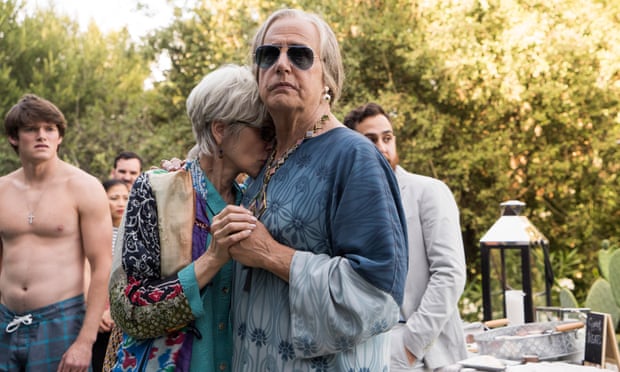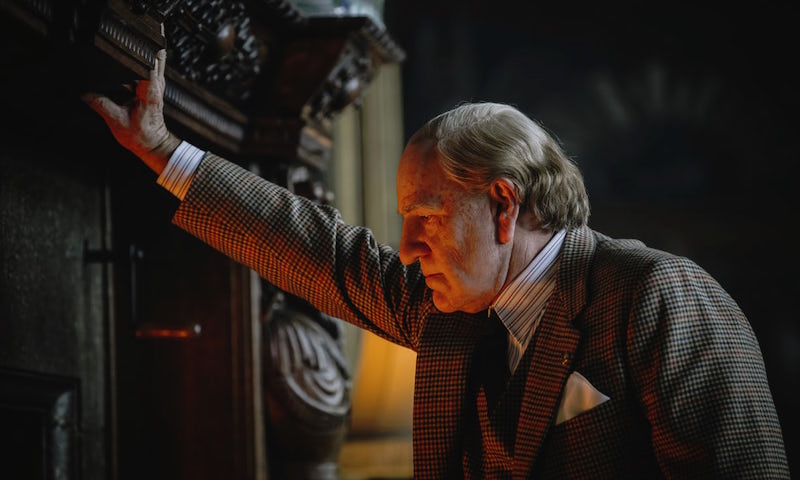Home > Media News >

Source: https://www.theguardian.com/
until this very recent, post-Weinstein age, predators were protected in large part by a distaste for the very idea of sexual abuse: it was so strong that it amounted to a collective phobia. Denial was easier than confrontation; disbelief of victims far more comfortable than credulity; silence, golden. That phobia persists even as the silence lifts, and now manifests in widespread contagion.
Right now in the showbiz environment, which is the locus of most of the scandal, the toxic swill is going everywhere – not just to the perpetrators of sexual abuse, nor even to their victims. Entire projects are biting the dust, programmes are being pulled, roles reshot with other actors, future seasons cancelled; avenues of desolation long and wide are opening out as predators are unmasked. Somewhere, you can bet, there’s an insurance whizz working up a Hollywood Package, unbeatable cover for when your millions disappear into the chasm of your star or showrunner’s reputation.
Kevin Spacey’s behaviour, and the unsettling, remorseless timbre of his apology, have torpedoed more than one project. The filming of series six of House of Cards was suspended indefinitely after Anthony Rapp’s allegation that he was sexually assaulted by the actor at the age of 14 (there followed a score of other allegations at the Old Vic, where Spacey was formerly artistic director); Netflix then changed tack and announced over the weekend that they hoped filming would resume in two weeks’ time. “The one thing we have learned throughout this process,” said Pauline Micelli, the vice-president of the co-production company Media Rights Capital, “is that this production is bigger than just one person and we could not be more proud to be associated with one of the most loyal and talented production cast and crews in this business.”
The president can simply be written out – indeed, given his slightly one-note malice over the past two seasons, writing Spacey out might be just the boost the show needed. Had House of Cards tumbled, it would have been terribly unjust to Robin Wright, whose performance was at least as definitive as her co-star’s, and it would have been unfair in a sourly appropriate way; the message being that even in disgrace, the man of the show had such obliterating power that it was untenable without him.

There is something of the medieval battle convention to this; when a knight is vanquished, all his womenfolk just have to spontaneously join a nunnery, or become vowesses. Particularly piquant was the departure of Jeffrey Tambor from Transparent: he denied all allegations of sexual misconduct, and blamed the “politicised atmosphere” on the show’s set for his departure: but however much the relationship has soured between him and the programme, it is difficult to conceive of it continuing without him. The director Jill Soloway said – long before these allegations surfaced – that she regrets not casting a trans woman in the role, which regret must surely be all the keener now. It is an unlovely irony to see a show that has done so much to tell a new story on gender and trans issues get capsized by the very old story of straight, white, male privilege.
Ordeal by Innocence, slated as the BBC’s flagship winter drama, has been pulled following multiple rape allegations against its star, Ed Westwick (who has denied them). TIf it never sees the light of day it would be absolutely galling, presumably, for his female co-stars, Anna Chancellor and the mesmerising Morven Christie; the show could have been a breakthrough moment for Crystal Clarke, whose previous outing was a teeny part as an ensign in Star Wars. The more ensemble the cast, the more the destinies of the actors are locked together, so that one star’s downfall takes them all down, like in rock-climbing.

An alternative is to reshoot an actor out of a film; this is what Ridley Scott did to distance All the Money in the World from Spacey, whom he recast with Christopher Plummer. It was a speedy practical fix, perhaps too fast: Plummer made it pretty plain who his sympathies were with, between Spacey and Rapp – “It’s very sad what happened to … Kevin,” he told Vanity Fair, “such a talented and a terrifically gifted actor, and it’s so sad. It’s such a shame.” (This is a variation on Weinstein’s “genius defence”, lodged on behalf of the rapist Roman Polanski, before Weinstein himself was the subject of any scrutiny – you could tell, apparently, that he was a “humanist” at heart because of his art; whatever he did and didn’t do with women and girl-children, it would have been, er, humanist in intent. It is one of the most vexing and squalid arguments in this whole business, since it is only ever the perpetrator who’s a genius. The idea of a victim having a creative spirit to be nurtured literally never occurs to these people).
Anyway, back to Plummer, whose slavering autobiography reads like the bell you’d put around a cat’s neck to warn birds: he was a high-risk replacement for Spacey. While it was unusual to reshoot at all, it would presumably be impossible to reshoot twice.
There are times when a show’s cancellation looks more than a little instrumental: Jeremy Piven has been accused of sexual assault by multiple women (charges he denies), and it looks unlikely that his show, Wisdom of the Crowd, will have another season. However, it was execrable anyway, and his co-star Natalia Tena will surely be glad to see this buried, and be remembered instead for her audaciously spiky, muddy role in Game of Thrones.

And co-stars don’t have to be the hapless victims of predatory behaviour – Gal Gadot, aka Wonder Woman, threatened to walk away from the role if the producer Brett Ratner, against whom there are numerous sexual assault allegations – all denied, wasn’t removed. However, this was a special case: it’s a film about empowered women, in which Gadot is irreplaceable. Generally speaking, the effects of disgrace cascade down to wreck the projects and livelihoods of people miles away from the perpetrator, with no power either to distance or save themselves. Weinstein’s downfall will take unnumbered films down with it, which has been seen as fair play since there were so many allegations of enabling behaviour among his employees. But that’s an uncomfortable thing to accept, since they cannot all have enabled him, and of those who did, we cannot make a collective-punishment case on such scant detail.
Often, probably not coincidentally, the day-to-day rule of the sexual aggressor has been squeezing the life out of a creative endeavour for ages (it is, presumably, quite difficult to create art while operating from a place of contempt for others); many of Pixar’s employees say the temporary departure of John Lasseter – following his admission of “missteps”, whatever the hell that means – will be good news for a production house that had slid from the wonderful Toy Story to the schlocky Planes 2. But whatever happens in the medium term, turmoil touches everyone in the moment: from the commissioners to the caterers, from slashed budgets to wrecked programmes. To go untouched by disgrace, you either have to be gargantuan – Amazon is unlikely to fail as a result of Roy Price – head of Amazon Studios – quitting. Or you have to be an institution – Aled Jones has been suspended from Songs of Praise, but even that incongruity – the pure-of-heart choirboy turned allegedly “inappropriate” presenter – wouldn’t be enough to collapse something so much older than he is.
Very rarely, a star will seem to embody the very spirit of a show, but turn out not to. In 2002, Angus Deayton crashed off the TV in a blaze of allegations; it should technically have been the end of Have I Got New for You, which he had fronted since its inception, but instead, the waters simply closed over his head and the programme carried on as usual. The parallel is inexact, since it was mainly drugs that bought him down: but this is a template for how to proceed. If what we really want is accountability, openness isn’t, on its own, enough – we need to find a way to contain disgrace to its source, or the mud bath will obscure the moral.











